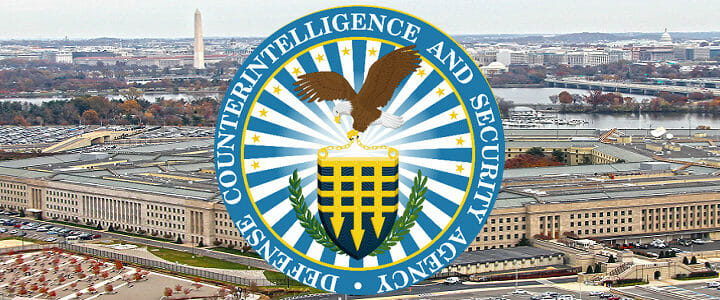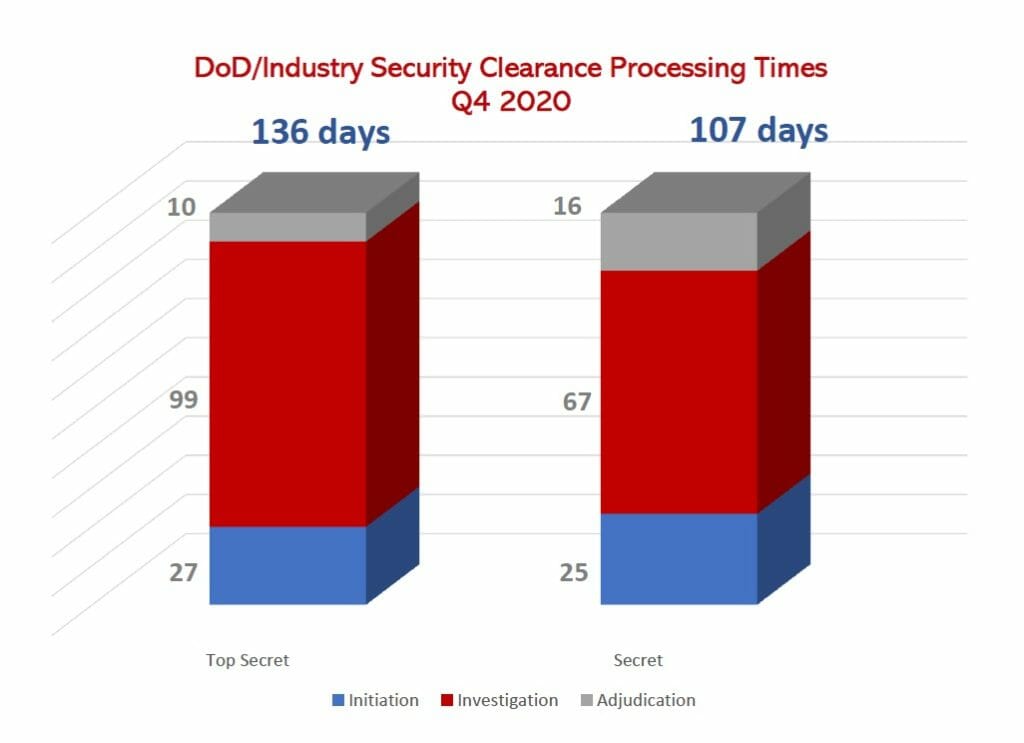One of many questions national security professionals are wondering about as they tackle workforce changes related to the coronavirus is how the pandemic will affect security clearance processing times, which has begun to achieve massive improvements over the past year, dropping from 2018’s highs of 500 days or more for a Top Secret security clearance for the fastest 90% of applicants.
The Defense Counterintelligence Security Agency (DCSA) has noted that many of the process improvements designed to help improve processing times have helped it respond to pandemic conditions, including VTC options for personal subject interviews, electronic fingerprints, and technological enhancements to things from the SF-86 application to continuous vetting over periodic reinvestigations.
Current processing times for a Top Secret security clearance are 136 days. It currently takes 107 days to process a Secret security clearance. These numbers are for DoD/Industry security clearance applicants only. Processing times for all applicants (active duty military, civilians, and the Intelligence Community) and generally slightly lower.
Security clearance processing times for Secret (Tier 3) clearance investigations saw a slight (6 day) increase over Q3 of 2020. This is the impact of the coronavirus on security clearance background investigations, which are creating some new delays in conducting aspects of the background investigation process, from verifying records to conducting personal subject interviews. VTC, remote verifications, and other changes are allowing background investigations to move forward, but it doesn’t mean it’s without slowdowns and hiccups. But the good news is the processing times are far, far below where they had been years prior, and within Intelligence Reform and Terrorist Prevention Act (IRTPA) goals.
“During COVID, for the first time in years, we met the IRPTA goals,” noted William Lietzau, director of DCSA, during the November meeting of the National Industrial Security Program Policy Advisory Committee (NISPPAC) meeting. The DoD’s Consolidated Adjudication Facility also drew down its backlog and reduced to a steady state well below all IRPTA timelines. “The guys actually doing the work a the pointy end of the spear have been keeping work moving forward in a way I couldn’t be more proud of.”
Rather than rolling back during COVID-19, Lietzau noted the agency continues to barrel forward, including increasing training offered by the Center for the Development of Security Excellence (CDSE), enhancing industrial security, and overhauling the agency’s IT infrastructure.





